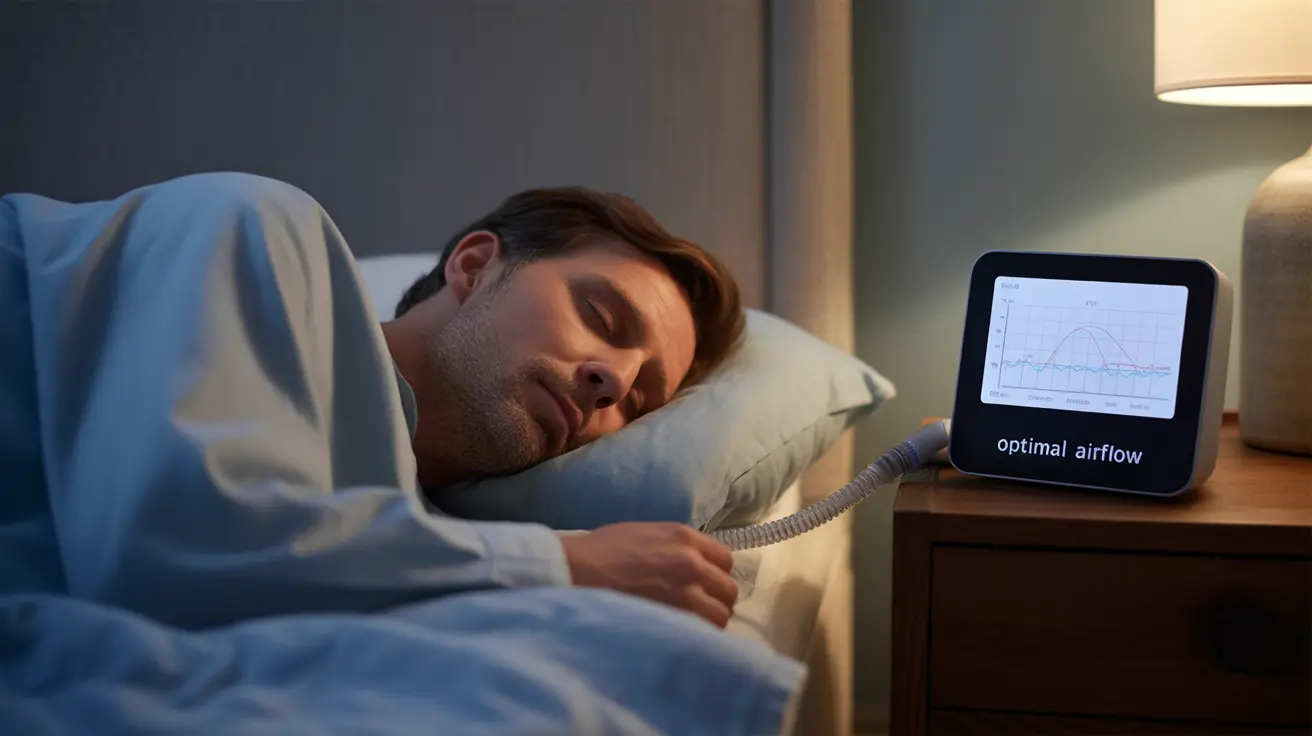For individuals diagnosed with sleep apnea, finding the right treatment device is crucial for achieving restful sleep and maintaining good health. Automatic Positive Airway Pressure (APAP) machines represent an advanced solution in sleep apnea therapy, offering dynamic pressure adjustments that respond to your breathing needs throughout the night.
In this comprehensive guide, we'll explore how APAP machines work, their benefits, and help you understand if this treatment option might be right for you.
How APAP Machines Work
APAP machines utilize sophisticated algorithms and sensors to monitor your breathing patterns continuously during sleep. Unlike traditional CPAP machines that deliver a fixed pressure, APAP devices automatically adjust the air pressure within a prescribed range to match your specific needs at any given moment.
These smart adjustments occur in response to various factors, including:
- Changes in sleeping position
- Different sleep stages
- Variations in breathing patterns
- Environmental factors
Key Benefits of APAP Therapy
APAP machines offer several advantages that make them an attractive option for sleep apnea treatment:
Personalized Pressure Delivery
The automatic adjustment feature ensures you receive exactly the pressure you need, when you need it, potentially improving comfort and treatment effectiveness.
Enhanced Comfort
By avoiding unnecessarily high pressures when they're not needed, APAP machines can provide a more comfortable sleeping experience compared to fixed-pressure devices.
Adaptation to Changing Needs
APAP devices can accommodate variations in your breathing requirements that may occur due to weight changes, alcohol consumption, or seasonal allergies.
Understanding APAP vs. Traditional CPAP
While both APAP and CPAP machines treat sleep apnea effectively, they differ in several important ways:
Pressure Delivery
APAP machines provide variable pressure that adjusts automatically throughout the night, while CPAP machines maintain a single, fixed pressure level determined during a sleep study.
Flexibility
APAP devices offer greater adaptability to changing circumstances, making them particularly suitable for patients whose pressure needs vary significantly.
Candidates for APAP Therapy
APAP machines may be particularly beneficial for:
- People with varying pressure needs
- Those who find fixed-pressure CPAP uncomfortable
- Individuals whose conditions change frequently
- Patients with mild to moderate sleep apnea
Potential Limitations and Considerations
While APAP machines offer numerous benefits, they may not be suitable for everyone. Some considerations include:
- Higher initial cost compared to CPAP machines
- More complex technology that may require additional maintenance
- Not always suitable for patients with certain cardiac conditions
- May not be appropriate for all types of sleep apnea
Frequently Asked Questions
What is the difference between APAP and CPAP machines for sleep apnea treatment?
APAP machines automatically adjust air pressure throughout the night based on your breathing patterns, while CPAP machines deliver a constant, fixed pressure level. This makes APAP devices more adaptable to varying needs but typically more expensive than CPAP machines.
How does an APAP machine adjust air pressure during sleep?
APAP machines use built-in sensors and algorithms to monitor breathing patterns, airway resistance, and sleep events. The device automatically increases pressure when it detects breathing difficulties and decreases it when normal breathing resumes, ensuring optimal therapy throughout the night.
Who is a good candidate for APAP therapy compared to CPAP?
APAP therapy is particularly suitable for people whose pressure needs vary throughout the night, those who find fixed-pressure CPAP uncomfortable, and individuals whose conditions fluctuate due to factors like weight changes or alcohol consumption. However, the final determination should be made by a sleep specialist.
What are the benefits and potential drawbacks of using an APAP machine?
Benefits include automatic pressure adjustment, enhanced comfort, and better adaptation to changing needs. Drawbacks may include higher cost, more complex technology requiring additional maintenance, and potential unsuitability for certain medical conditions.
Can APAP machines be used for central sleep apnea or only obstructive sleep apnea?
APAP machines are primarily designed for obstructive sleep apnea (OSA). They may not be appropriate for central sleep apnea (CSA) or complex sleep apnea, as these conditions require different types of therapy. Patients with CSA typically need BiPAP or ASV devices instead.




